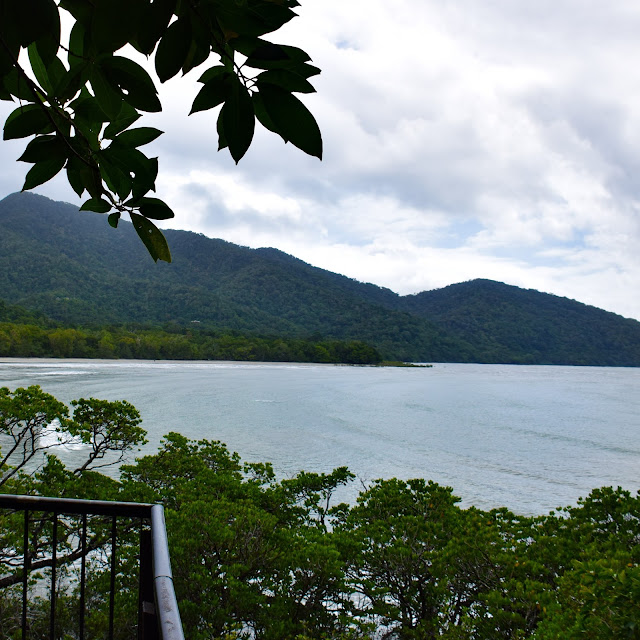
Exploring the Best Tours for Your Next Adventure
In the quest for an unforgettable journey, individuals often encounter a plethora of choices that cater to diverse interests and preferences. Each journey offers a unique set of activities, scenery, and cultural immersion, making the selection process both exciting and daunting. By delving into the possibilities, travelers can tailor their adventures to align with their desires, ensuring a fulfilling getaway.
Understanding the varied dimensions of each option can reveal the hidden gems and standout features that resonate most with one’s personal aspirations. From exhilarating escapades in breathtaking landscapes to serene retreats in tranquil environments, the art of selection involves weighing the pros and cons of each possibility. With thoughtful consideration, the ideal combination can emerge, promising cherished memories and enriching encounters.
Embracing the process of exploration not only enhances the anticipation of the upcoming adventure but also facilitates a deeper connection with the chosen destination. By thoroughly assessing available alternatives and reflecting on individual priorities, seekers can embark on a journey that truly captivates their spirit and nourishes their wanderlust.
Identifying Your Travel Preferences
Understanding individual inclinations is crucial for enriching your journeys. By recognizing personal tastes, one can tailor adventures that resonate deeply, ensuring memorable moments and satisfying explorations.
To pinpoint these unique preferences, consider the following aspects:
-
Type of Activities:
-
Adventure sports (like hiking, surfing, or skiing)
-
Cultural experiences (such as museum visits, local dining, or attending performances)
-
Relaxation (beaches, spas, or quiet retreats)
-
Travel Style:
-
Luxury (high-end accommodations, fine dining)
-
Budget-friendly (hostels, street food)
-
Backpacking (minimalist approach, using local transport)
-
Destinations:
-
Urban (cities with vibrant nightlife and shopping)
-
Nature-focused (national parks, wildlife reserves)
-
Historical (areas with rich heritage and landmarks)
-
Travel Companions:
-
Solo (personal reflection and independence)
-
Family (activities suitable for all ages)
-
Friends (social and adventurous outings)
Reflecting on these elements allows for a clearer vision of what will resonate most. Take time to note preferences and prioritize what aspects bring genuine pleasure.
Types of Tours Available Today
In today’s vibrant landscape of exploration, various formats cater to the diverse interests and preferences of wanderers. Each option presents a distinct approach to engaging with the world, whether through in-depth cultural immersion or adrenaline-pumping adventures. Understanding these alternatives can greatly enhance one’s journey and overall satisfaction.
Adventure excursions offer exhilarating activities for those seeking thrills, ranging from hiking in breathtaking mountains to diving in azure waters. Cultural voyages provide a deeper understanding of local traditions and lifestyles, often immersing travelers in authentic experiences. Scenic routes highlight the natural beauty and iconic landmarks, allowing participants to appreciate the aesthetic allure of their surroundings.
Luxury getaways focus on providing indulgent comfort and exclusive experiences, while eco-friendly adventures promote sustainable practices and appreciation for nature. For those keen on learning, educational trips dive into subjects such as history, art, or cuisine, unraveling complexities through expert-led sessions. Each journey type presents unique benefits, catering to the varied desires of explorers.
Evaluating Tour Packages and Pricing
When selecting an adventure, analyzing options and costs is crucial for making informed choices. Various elements influence the appeal of packages, so understanding these factors will enhance decision-making.
Key aspects to consider include:
-
Inclusions: Review what is offered, such as meals, accommodations, and activities.
-
Exclusions: Identify elements that may not be covered, like airfare or personal expenses.
-
Duration: Assess the length of the journey and whether it aligns with personal schedules.
Pricing is another vital factor that requires careful scrutiny. Here are several points to keep in mind:
-
Base Price: Consider the starting cost and what is included in that fee.
-
Extra Charges: Look for any additional fees that may apply, such as taxes or tips.
-
Discounts: Investigate if there are any promotional offers or early booking advantages.
Ultimately, understanding the components and total expenses will aid in making wise selections that resonate with personal preferences and budget constraints.
Considerations for Group vs. Solo Travel
When planning an adventure, the choice between sharing the journey with others or embarking on a solo quest plays a significant role in shaping the overall enjoyment and outcomes. Each option presents its own charm, allowing travelers to delve into different facets of exploration and personal growth. Weighing the pros and cons of communal and independent journeys can guide enthusiasts to make a well-informed decision that aligns with their preferences and aspirations.
Advantages of Group Adventures
Traveling in a collective setting often fosters a sense of camaraderie and support among participants. Shared experiences can lead to lasting friendships and memories that are enriched by the diverse perspectives of fellow adventurers. Moreover, logistics like accommodation, transportation, and even meal arrangements tend to be more manageable. Group activities can also create an atmosphere of excitement, where timing and coordination are made simpler through collaboration.
Benefits of Solo Exploration
On the other hand, wandering alone provides unparalleled freedom and flexibility. Independent journeys allow for spontaneous itinerary changes, enabling travelers to pursue their individual interests without compromise. Solo travelers often experience a deeper connection to their surroundings as they navigate new environments at their own pace. Furthermore, this approach promotes self-discovery and personal growth, as overcoming challenges alone can boost confidence and resilience.
Understanding Itineraries and Duration
In planning a journey, grasping the structure of plans and the length of stay is essential. A well-crafted agenda not only maps out the highlights but also sets the rhythm of the adventure. Different lengths of time can greatly influence the depth of exploration and the overall enjoyment of the destination.
Itineraries can vary widely based on several factors. Key aspects to consider include:
-
Destinations: Different locations may require more or less time to fully appreciate.
-
Activities: The types of experiences one wishes to engage in can greatly affect the necessary duration.
-
Pace: Individuals have varying preferences for how quickly or slowly they like to move through their plans.
-
Travel Style: Options may differ significantly between solo adventurers, families, and luxury seekers.
A typical itinerary can be structured in various ways, such as:
-
Day Trips: Brief excursions focused on specific sites.
-
Multi-Day Journeys: Extended periods allowing for deeper exploration and flexibility.
-
Custom Programs: Tailored schedules designed to suit unique interests and time constraints.
Ultimately, understanding the balance between itinerary precision and duration will lead to more fulfilling excursions. Time spent planning can greatly enhance the satisfaction drawn from each moment of the journey.
Reviews and Recommendations for Tours
When it comes to selecting an outdoor adventure, the voices of fellow explorers can significantly influence your decision. Personal experiences, insights, and evaluations shared by past participants often provide vital information that helps in making informed choices. This section highlights the importance of feedback and suggestions from previous travelers, ensuring that your choice aligns with your preferences and aspirations.
Many adventurers emphasize the value of honest critiques. Detailed reviews offer a glimpse into what to expect, revealing both the highlights and challenges of various itineraries. Participants often share their favorite moments, the charisma of guides, and the overall ambiance, creating a comprehensive picture that transcends mere descriptions. By exploring these narratives, one can grasp the essence of each individual journey.
Furthermore, recommendations from trusted sources enhance confidence in the selection process. Whether it’s a friend’s suggestion or a reputable travel blog, these endorsements can steer you toward options that resonate with your interests and budget. Such insights not only illuminate the paths taken by others but also inspire new ideas for future adventures.
In summary, delving into evaluations and expert opinions plays a crucial role in shaping your adventure choices. By considering the experiences of others, you can embark on an outing that promises both thrill and satisfaction.
Questions and answers: Comparing tours
What factors should I consider when comparing different tours?
When comparing different tours, there are several factors you should take into account to ensure you find the perfect travel experience. First, consider the itinerary: look for tours that cover the destinations and activities you’re most interested in. Second, assess the duration of the tour; some might be quick trips while others could span weeks, so make sure it fits your schedule. Third, evaluate the group size; smaller groups often provide a more personalized experience. Additionally, check reviews and ratings from past travelers to gauge the quality of the tour operator and the experiences they offer. Finally, consider the cost versus what is included; look for tours that offer good value for money with accommodations, meals, and activities included.
How can I ensure that the tour I choose matches my travel style?
To ensure that the tour you choose matches your travel style, start by identifying what kind of traveler you are. Do you prefer adventurous, active experiences like hiking and exploring, or do you prefer relaxation and leisure, such as lounging on a beach? Once you know your travel style, look for tours that cater to those preferences. Research the activities included in the tour, the pace of the itinerary, and even the type of accommodations offered. Reading reviews can also provide insight into what previous travelers experienced and help you gauge if the tour aligns with your expectations. If possible, reach out to the tour operator to ask specific questions about the itinerary and the overall vibe of the tour.
Are there any tips for finding the best deals on tours?
Yes, there are several useful tips for finding the best deals on tours. Start by booking in advance; many operators offer early-bird discounts that can save you money if you plan ahead. Additionally, consider traveling during the off-peak season, as prices tend to drop when demand is lower. Signing up for newsletters from tour companies can also provide exclusive discounts and promotions. Don’t forget to compare prices between various operators for similar itineraries, as prices can vary significantly. Lastly, look for package deals or promotions that may include extra perks, such as meals or guided excursions, which can enhance your overall experience without straining your budget.
What should I do if I have specific requirements or preferences for my tour?
If you have specific requirements or preferences for your tour, the best approach is to communicate them clearly with the tour operator. Many tour companies are more than willing to accommodate personal preferences, whether they pertain to dietary restrictions, mobility concerns, or particular interests like photography or history. When researching tours, look for those that offer customization options. You can also consider private tours, which often allow for personalization in the itinerary. Additionally, reading through FAQs or contacting customer service for specific questions can further clarify whether a tour will meet your needs. Lastly, be flexible; sometimes, being open to slight adjustments can lead to an unexpectedly wonderful travel experience.
What are the benefits of choosing a small group tour over a large group tour?
Opting for a small group tour offers several advantages, such as more personalized attention from the tour guide and a more intimate travel experience. With fewer participants, you’ll have more flexibility in your itinerary and more opportunities for meaningful interactions with local guides. Small group tours also allow you to visit attractions with less crowding and provide a better chance to explore unique destinations off the beaten path.
How do guided tours compare to self-guided travel experiences?
Guided tours, such as those offered by companies like Trafalgar and Globus, provide structured itineraries with professional tour guides who offer in-depth knowledge and insights about each destination. You’ll also benefit from organized logistics, such as transportation and accommodation. In contrast, self-guided travel offers more flexibility and freedom to explore at your own pace but requires more planning and research to ensure a smooth travel experience.
What should you consider when choosing a tour company for your vacation?
When selecting a tour company, consider factors such as the company’s reputation, the types of tours they offer, and their level of expertise in your destination. Travel companies like Insight Vacations and Tauck provide various options, including group tours and flexible itineraries. Evaluate the inclusions in their packages, such as accommodations, local guides, and attractions, and read reviews to ensure you find the best fit for your travel style and preferences.
How can a tour guide enhance your experience during a vacation?
A tour guide can significantly enhance your vacation by providing valuable local knowledge, historical context, and cultural insights. Tour guides often lead group tours or small group tours and help navigate logistics, allowing you to focus on enjoying your trip. They can offer first-hand information about sights and attractions, making your sightseeing experience more informative and enjoyable.
What are the advantages of including free time in a tour itinerary?
Incorporating free time into a tour itinerary allows you to explore destinations at your own pace and pursue personal interests. While guided tours provide structured activities and sightseeing, having free time offers the flexibility to visit attractions that may not be included in the main itinerary or to simply relax and enjoy local experiences. This balance can make your vacation more enjoyable and tailored to your preferences.







